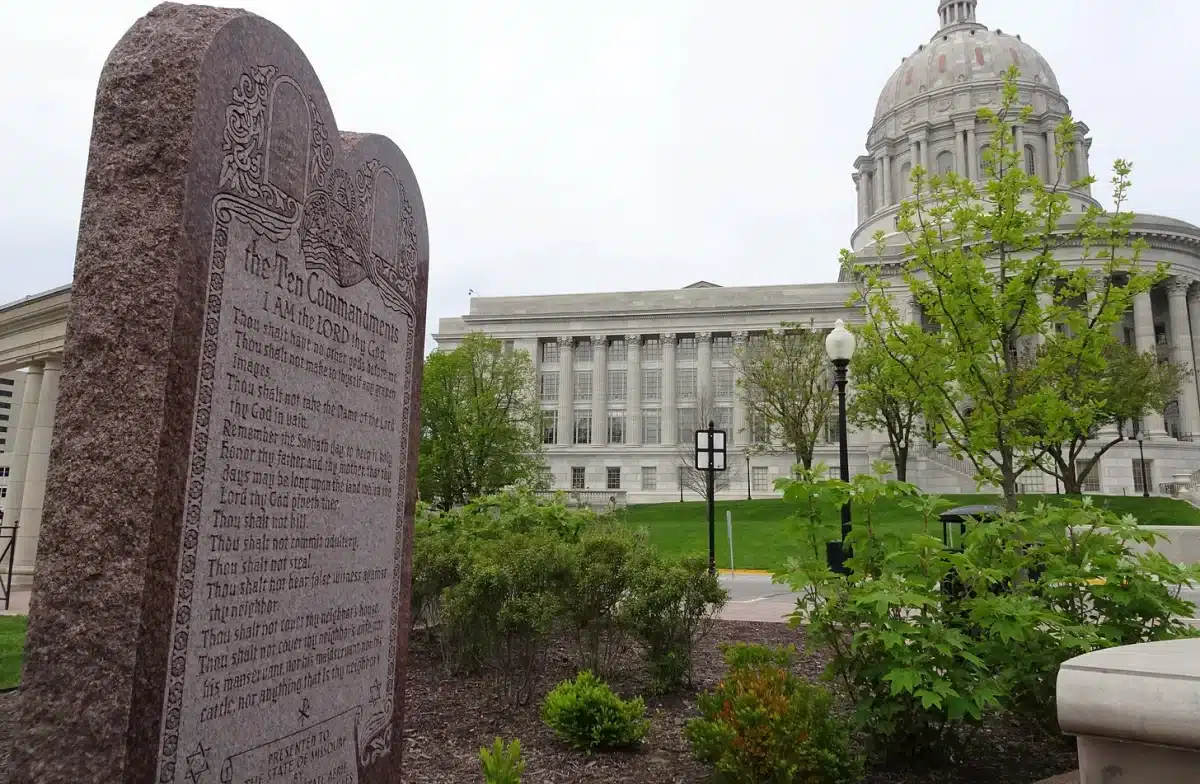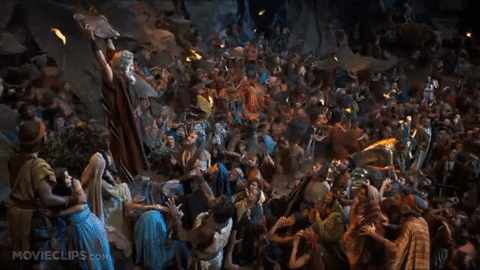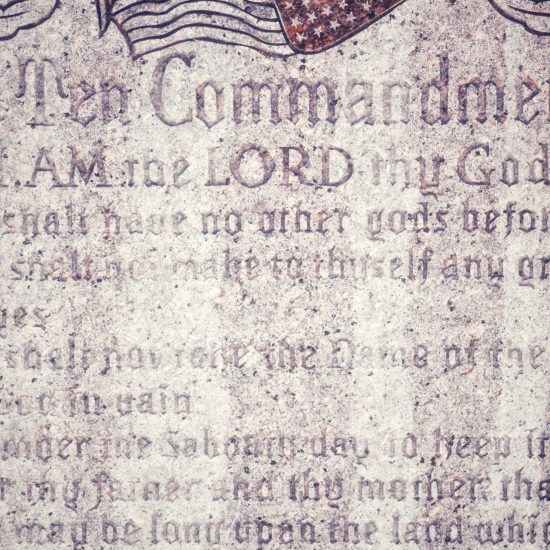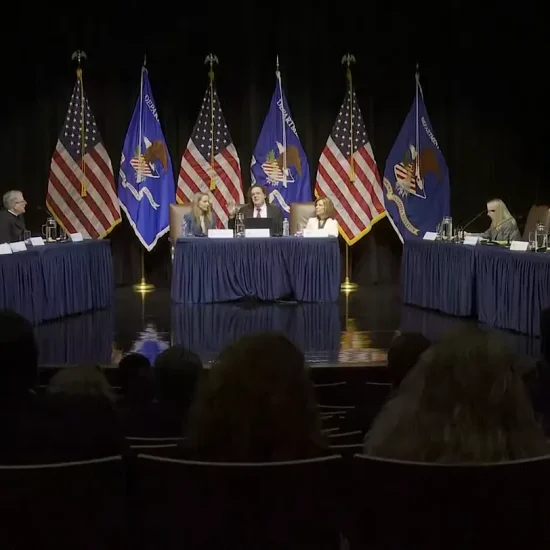
As Moses came down the mountain with the tablets of the Ten Commandments, Joshua said he heard “the sounds of war in the camp.” But Moses lamented that it’s instead celebratory singing. However, in Texas today, the sounds about the Ten Commandments are actually shouts for war.
On April 20, the Texas Senate voted 17-12 to pass a bill that would require every public school classroom in the state to prominently display a King James Version of the Ten Commandments. The bill still must pass the House before going to the governor’s desk, so it’s not guaranteed it will actually go into effect this year. But it represents what could be one of the most significant efforts in decades to transform public schools into Sunday Schools (though hopefully they won’t draw the adultery commandment during art class).
The bill’s lead sponsor, Republican Sen. Phil King, is a graduate of Dallas Baptist University and member of Trinity Bible Church in Willow Park. He told his colleagues he was “really really excited” about the bill on “recognizing America’s religious heritage.” But the focus of his comments quickly demonstrated his excitement was about the legal battle that would come if the bill passed (because thou shalt seeketh to be sued).
As King noted in his comments for his bill, a ruling last year by the U.S. Supreme Court significantly impacted church-state principles. In that case, Kennedy v. Bremerton, the court’s majority sided with a high school football coach who led his students in prayer on school property during a school activity. The ruling not only opened the doors to some kinds of coercive religious expressions in public schools, but it also effectively overturned the “Lemon test,” a standard used by judges for four decades when considering possible church-state establishment violations.
As King highlighted, the now-soured Lemon test had been used in 1980 in Stone v. Graham as the justices ruled a Kentucky statute that required the posting of the Ten Commandments in every classroom was unconstitutional. With the legal precedent that served as the foundation for that ruling now dismantled, King thinks the time is ripe to try again. Any lawsuit filed if Texas passes the bill — and litigation would quickly come if it becomes law — would find a tougher legal path considering both new precedents and the makeup of the highest court in the land.
Others who spoke during debates in the Texas Senate also signaled the goal of passing this bill as test legislation that could lead to a significant court ruling opening the doors to more forms of coercive religious expression in public schools. This bill joins others across the country in the aftermath of the Kennedy v. Bremerton decision that seek to change the church-state balance, particularly in public schools — including two more passed by the Texas Senate over the past week to create school policies for a “period of prayer and reading of the Bible or other religious text” and to allow schools to hire chaplains to minister to students.
So this issue of A Public Witness will conjure up the righteous indignation of Charlton Heston as Moses to look at the dangerous push for the Ten Commandments in public schools.

Deep in the Heart of Hollywood
As lawmakers in the Lone Star State debated the bill, the sponsoring senator reminded them of a movie advertisement just outside the Capitol. Well, he didn’t call it that. He noted that the language of the Ten Commandments that his bill would require in classrooms matches that on a Ten Commandments monument on the Capitol grounds. While he correctly noted that the Supreme Court in 2005 allowed that monument to stay because of its history there and the presence of other monuments, the lawmaker didn’t explain the history.
It started when Hollywood director Cecil DeMille decided in the 1950s to remake his 1923 hit silent film The Ten Commandments with a new talking version. The epic 1956 version featured Charlton Heston as Moses and the voice of God in the burning bush (a dual role some would-be “prophets” seem to follow today). But before the movie became a regular on TV each year around Easter, it planted itself on public lands across the country with a unique marketing campaign.
The rest of this piece is only available to paid subscribers of the Word&Way e-newsletter A Public Witness. Subscribe today to read this essay and all previous issues, and receive future ones in your inbox.





